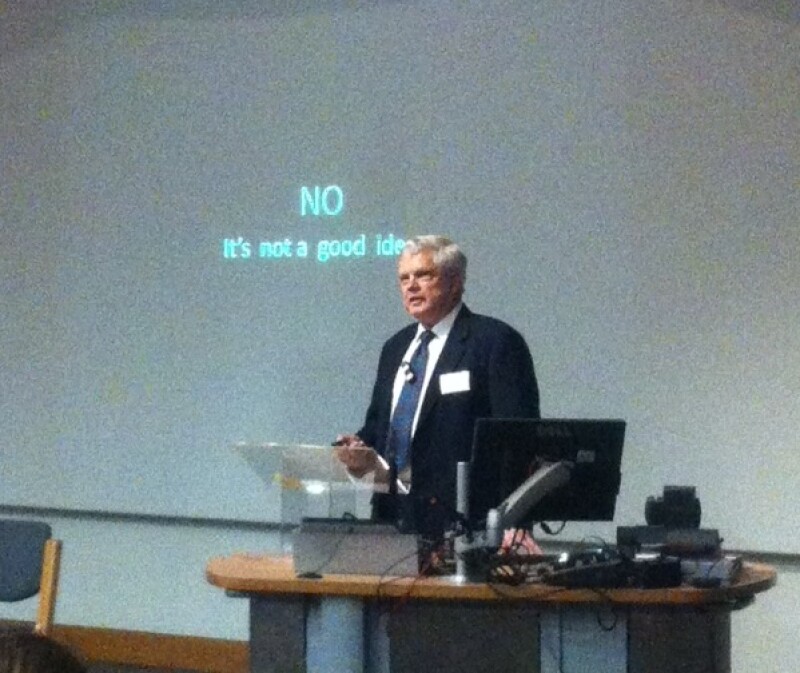
The Fordham Law School professor addressed the topic “Is the culture of the public domain a good idea?” and gave an immediate answer (see photo right) in the speech on Wednesday evening.
He said the culture of the public domain, as proposed by professors such as Larry Lessig, was “spreading like a virus” in United States academia, and was likely to reach other countries. It was inspired by digital technology, and privileged users and derivative creators at the expense of original creators, said Hansen.
He added that it has undue influence in US copyright cases, for example in the Second Circuit, thanks to the role played by law clerks, who have often been taught by copyright atheists or agnostics.
Referring to the evolution of US copyright law since the Constitution's ratification, Hansen noted that 12 out of the 13 colonies already had copyright protection in 1787.
He stressed that the philosophy of copyright was not about providing a balance but providing and exclusive right. It was also not specifically about incentivising creation.
Instead, said Hansen, copyright was intended to be a property right and was a natural right in many state laws.
He also criticised the public domain, saying it was a drag on new artists and commercial works and did not benefit consumers: “It produces derivative works, self-absorption, instant gratification, a culture where taking something created by someone else is good. It is a bad moral lesson.”
But he acknowledged that “copyright owners are part of the problem” as they are bad at making arguments and debating on social media. Specifically, he criticised attempts to seek royalties for mobile-phone ringtones and also accused the Authors Guild of “destroying copyright” in its legal battle with Google Books.









